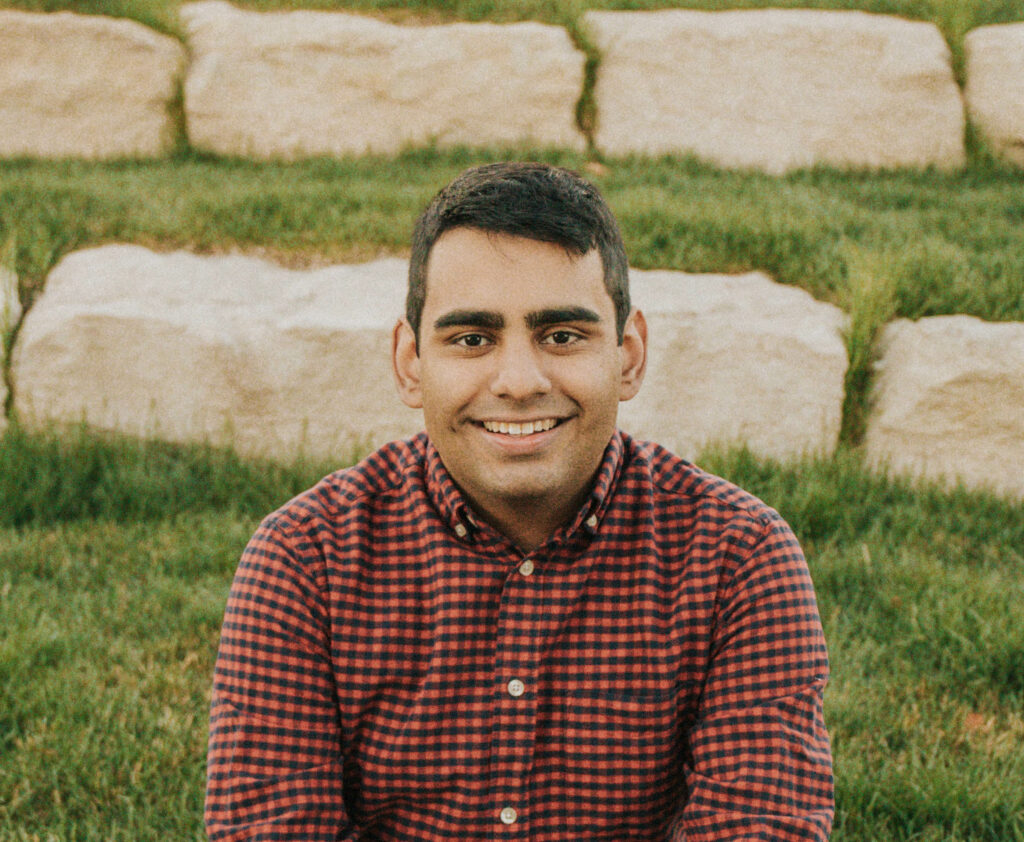“¿Quién va a orar?” is the opening question around the dinner table in my family. The prayer, regardless of who has the honor of leading us, tends to go along the same lines:
“Dios, gracias por estos alimentos, por las manos que los prepararon, y por las manos que proveyeron; y gracias por los alimentos que tienes para nosotros mañana. En el nombre de Jesús, amén.”
The most formative experiences in my life have happened around the table with my family and friends; we break bread and share life together. One time in high school, while having dinner at a friend’s home, I realized that the particular prayer “gracias por los alimentos que tienes para nosotros mañana” was unusual. Why would we thank God for the food of tomorrow? Although today my family always has enough food to eat until we are all satisfied, that was not always our reality. My family had learned to declare in faith that God will provide for and satisfy all our spiritual, physical, social, mental, and emotional needs. When I was a preteen, my family had used all of our money to lease an apartment that was nowhere near big enough for my entire family. Our first night there, with our refrigerator and cabinets empty, our mother asked my older sister and me to set the table. We set the table, knowing that we had absolutely nothing to eat. We filled our glasses with tap water and sat around the table. My father smiled and prayed, thanking God for a place to live and for the food that God would provide in the time to come.
Around that table, we raised our glasses of water in alabanza y adoración towards God as we shared life, told jokes and stories, and delighted in each other’s presence. When the time came, we rose from our table and got ready for bed. Then, we heard a knock at the door, and we peeked down the hallway to see who was visiting us so late. My parents opened the door to reveal the faces of a couple from the church we attended at the time. “Perdón por molestar,” they said, as they started to explain that while they were grocery shopping that evening (which happened to be at the same time we were sitting around the table), they were compelled by the Holy Spirit to buy groceries for us. They handed my mom a paper bag full of groceries, while sharing that there was more in the car. They unloaded everything, and we got to work putting everything away in our empty refrigerator and cabinets. Eventually we had no more room for everything they had brought to us, including a warm meal for us to eat right away. “Dios es bueno,” my dad exclaimed with tears in his eyes as we found ourselves around the table enjoying the warm meal and groceries that had been gifted to us.
I have come to profoundly appreciate and admire the faith of my parents, and one day I hope to have just a fraction of the faith they have. Ever since they immigrated to the United States, they have looked towards God and the justice of God that always delivers. As they set on the journey of growing their family in this foreign land, they courageously faced many challenges and have held steady to the life-giving faith they discovered in the process. At the table, my parents instilled in me a view of God that celebrates and dances with us on the mountaintop and mourns and cries with us in the valley. They would say, “confia en Dios, mijo,” as we dreamed of a world where we will no longer experience challenges because of the color of our skin, our immigration status, or the language we speak.
Could you imagine a world where the things of death are no more? Could you imagine a world where racism, poverty, sexism, and all that cause us to be treated as less than human are no more? I must admit that some days it is hard to believe that a better world is possible, but how can I not believe that a better world is possible when the God we serve has proven time and time again that deliverance will come? From experiencing the evil of racism, to the uncertainty of not knowing where our next meal might come from; from hoping that we have enough money to send back to la tierra madre, to the joy of serving in ministry—my family has learned to trust in the God whose justice always delivers. And I have learned that when my faith does not feel like it’s enough, the faith of those alongside me and those who have gone before me is enough to sustain me and propel me into the future that God calls us towards.
God’s faithful deliverance invites us to the life of abundance offered by Jesus Christ through the power of the Holy Spirit. And as we experience that deliverance, we are invited to ensure that others experience it as well. So, when our stomachs are full, we must ensure that those around us do not go to bed hungry. When we are no longer thirsty, we must ensure that the thirst of those around us is satisfied. When we are clothed and sheltered, we must ensure that those around us are clothed and sheltered. God is particularly interested in the holistic well-being of God’s creation, where all can experience the fullness of shalom or the favor of the Lord. The prophets remind us of this reality, Jesus calls us towards it, and John envisions it in Revelation 21—a world where all will flourish, a world where the things of death will be no more. So, we move towards the world that God is making by meeting the needs of those around us, as well as by addressing and reimagining the systems that cause the disenfranchised to be in that position in the first place. The subversiveness of the Kingdom of God compels us to build a just world where we can genuinely experience shalom.
At the end of every year, my family gathers around a table to have a meal, play games, and most importantly, to highlight how God has been faithful to us that year and express the desires of our hearts for the upcoming year. As Christians, we are called to be reminded of the steadfast faithfulness of God in Scripture, in our lives, and in the lives of those around us. We anticipate that God is bringing about a life-giving future and lean into that truth. However, we must also be intentionally present to our current reality, so we always ask ourselves the question, “y entonces, qué podemos hacer?”
In my family, we continue to move forward. “Pa’lante,” we say, despite the challenges we face because of our social location in a foreign, yet native, land. “Pa’lante,” we say, as we continue to join God in the work of bringing about the Kingdom and its righteousness. “Pa’lante,” we say, as we anticipate the fullness of the Kingdom that will do away with the things of death. “Pa’lante,” we say, acknowledging the footprints in the sand, showing where we have come from and where we have been. “Pa’lante,” we say, knowing that God will meet us in the here and now and move with us towards the world that God is making. “Pa’lante,” we say, in a unified voice with nuestro resilient pueblo, as the faith of those before us propel us into the future.
So, together we pray to God, “Gracias por Tu justicia que nos ha librado hoy y en el pasado, y gracias por como nos librarás en los días venideros hasta la llegado de la plenitud de Tu Reino. En el nombre de Jesús y por el poder de Tu Espíritu Santo, amén.” And to our people, we say, “Venga lo que venga, pa’lante, mi gente.”

Christopher J. Cruz Osorio is a first-generation Honduran-American and has served in ministry alongside his family for a decade. He graduated from Northwest Nazarene University (‘21) in Nampa, Idaho, with Bachelor of Arts degrees in Multicultural Leadership and Christian Ministry. He is currently serving as the pastor of student ministries at the Church of the Nazarene in Harrisonburg, Virginia.
This entry is part of our blog series “Rooted: Elders, Ancestors, and Collective Memory”. As BIPOC communities, our faith has been deeply formed by the experiences of our people. Our communities have developed ways of knowing and understanding God through suffering, lament, joy, and hope. Our stories, narratives, and faith practices developed over generations are rooted in context, cultural values, and the struggle for justice. Let’s learn from one another and develop a collective memory that leads to a prophetic imagination.
The views and opinions expressed on the Chasing Justice Blog are those of the authors and do not necessarily reflect the official policy or position of Chasing Justice. Any content provided by our bloggers or authors are of their opinion and are not intended to malign any religion, ethnic group, club, organization, company, individual or anyone or anything.







